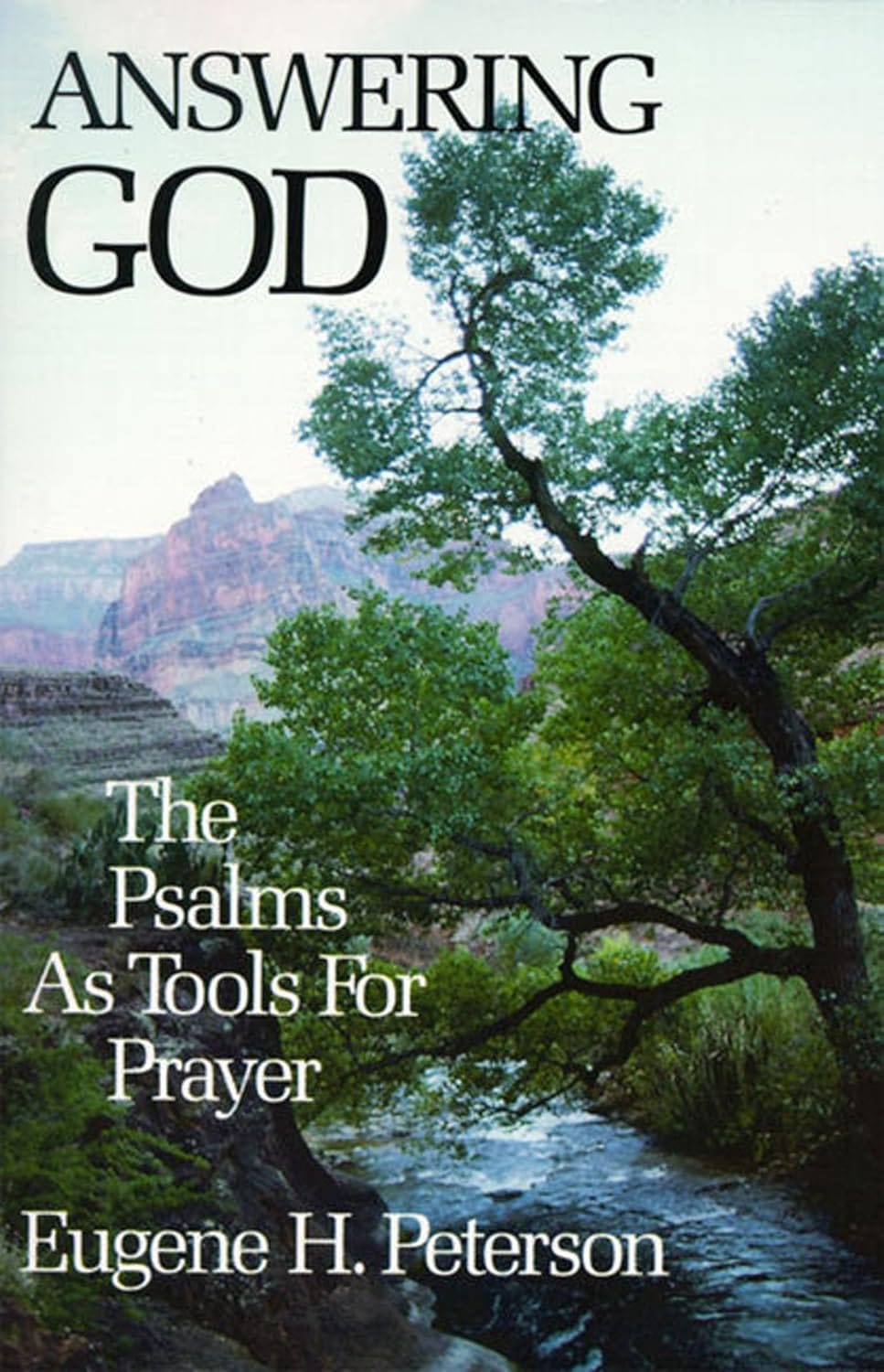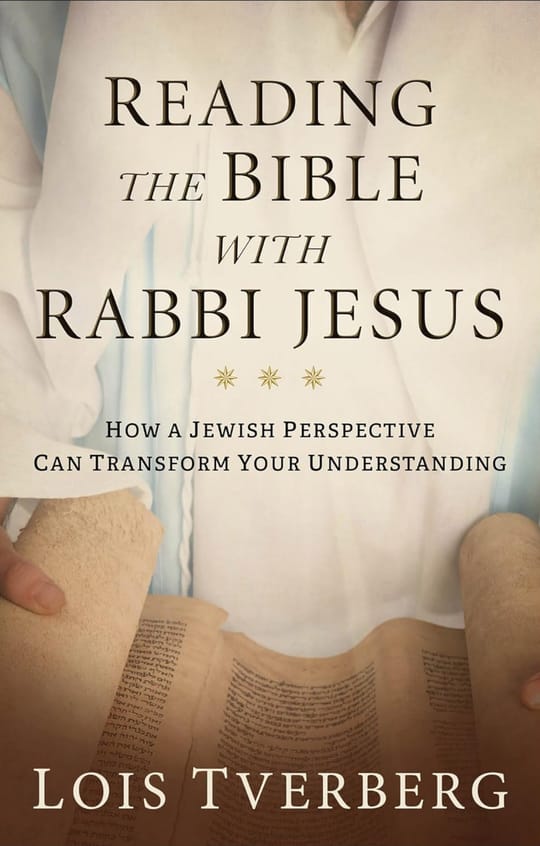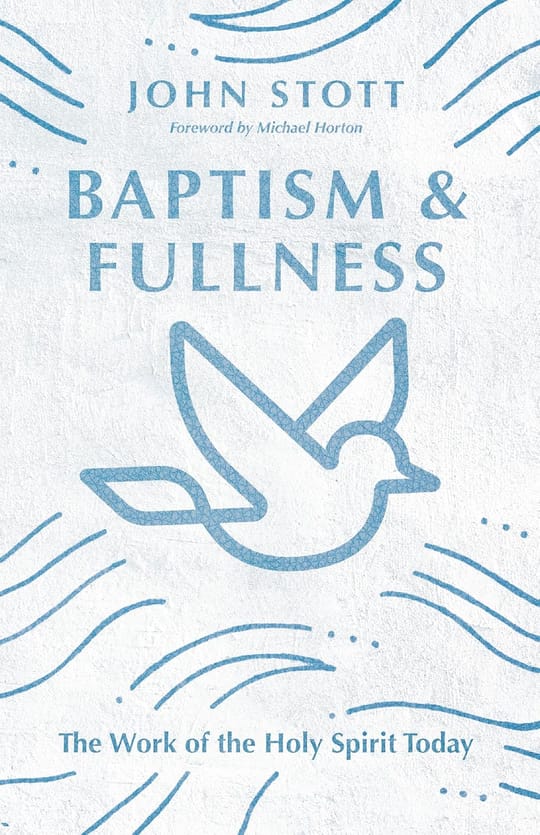Book: Answering God: The Psalms as a Tool for Prayer
Author: Eugene Peterson
Quick Thoughts.
I have heard for years that many people read a Psalm a day to learn how to relate to God. Eugene Peterson not only recommends this as well, but dives deep into how this will help us to know God more. Highly recommended.
Amazon Bio
Eugene H. Peterson speaks to Christians who realize the necessity for prayer and yearn for it but who find their prayer unconvincing and unsatisfying. Addressing the causes of this dissatisfaction, Answering God offers guidelines for using the Psalms as dynamic tools for prayer.
Synopsis
In Answering God: The Psalms as Tools for Prayer, Eugene Peterson offers a compelling argument for using the Psalms as a foundational guide for Christian prayer. He asserts that the Psalms are not just poetic expressions of faith but are divinely inspired prayers meant to shape our conversations with God. Peterson walks through the structure, rhythm, and honesty of the Psalms, showing how they encompass every human emotion: joy, sorrow, anger, doubt, and praise. Rather than approaching prayer as a purely spontaneous or formulaic exercise, he teaches that praying the Psalms forms us spiritually, aligning our hearts with God’s will. His writing is both deeply theological and pastoral, making the book accessible to both scholars and laypeople.
Who Should Read This?
This book is an essential read for anyone seeking a richer prayer life. If you struggle with knowing what to say in prayer, Answering God provides a biblical framework for engaging with God honestly and consistently. Peterson’s pastoral tone makes this book both convicting and encouraging, pushing readers toward a more authentic, scripture-based dialogue with God. It’s particularly beneficial for pastors, ministry leaders, and anyone longing for a deeper, more structured prayer habit.
Therefore, this book is good for:
- Christians wanting to deepen their prayer life.
- Pastors and ministry leaders looking for a biblical foundation for prayer.
- Those struggling with prayer consistency or honesty in prayer.
- Readers who appreciate Peterson’s insightful, poetic writing style.
Core Themes of This Book
- Prayer as a Response, Not Initiation.
- Peterson emphasizes that true prayer is always a response to God’s Word, not something we generate on our own. The Psalms serve as a guide, teaching us how to answer God in prayer rather than just speaking to Him from our own impulses.
- The Psalms as a Training Ground for Prayer.
- The Psalms are not just poetic expressions but a divinely inspired prayer book meant to shape our spiritual lives. They teach us how to pray with honesty, depth, and theological integrity.
- Honesty and Emotional Depth in Prayer.
- Peterson highlights how the Psalms encompass the full range of human emotions: joy, grief, anger, doubt, and praise. He argues that biblical prayer is not sanitized or formulaic but brutally honest before God.
- Prayer as Formation, Not Just Expression.
- Rather than seeing prayer as simply a way to express ourselves, Peterson teaches that prayer forms us into people who think and live in alignment with God’s character and purposes. The Psalms reshape our desires, thoughts, and emotions as we pray them.
- Prayer as Participation in God’s Story.
- The Psalms are deeply rooted in God’s redemptive history. When we pray them, we step into the grand narrative of Scripture, aligning ourselves with God’s will rather than making prayer about personal desires alone.
- The Rhythms and Patterns of Biblical Prayer.
- Prayer is not meant to be chaotic or completely spontaneous. Peterson explores the structure and rhythm of the Psalms, showing how they offer a balanced model of prayer, blending praise, lament, confession, and thanksgiving.
- The Power of Repetition and Liturgy.
- The book argues against the modern tendency to see repetitive or structured prayer as lifeless. Instead, Peterson presents the Psalms as a form of sacred repetition that grounds our prayer life in truth rather than fleeting emotions.
- Prayer in Community.
- The Psalms were meant to be prayed both individually and corporately. Peterson encourages a communal approach to prayer, where churches and small groups pray the Psalms together as a form of worship and spiritual unity.
9. God as the Focus, Not Just the Self.
- Modern prayer often becomes self-focused, but the Psalms redirect our attention toward God: His nature, His works, and His kingdom. Peterson urges readers to make prayer God-centered rather than self-centered.
- The Intersection of Prayer and Daily Life.
- Peterson stresses that praying the Psalms isn’t just a religious exercise but a practice that shapes how we live. The Psalms teach us to bring every part of our lives: work, relationships, suffering, and joy, into God’s presence.
At its core, Answering God is a call to rediscover prayer through the Psalms, moving beyond casual or self-driven prayer to a biblically rooted conversation with God.
Action Steps You Will Learn.
- Read the Psalms Daily: Begin integrating the Psalms into your prayer life by reading and meditating on one Psalm per day.
- Pray the Psalms Out Loud: Instead of simply reading, turn the Psalms into personal prayers by vocalizing them and inserting your own circumstances where applicable.
- Journal Your Prayers: Write your own prayers using the structure of the Psalms, incorporating praise, lament, confession, and thanksgiving.
- Memorize Key Psalms: Commit verses like Psalm 23, 51, or 139 to memory so they naturally shape your prayers.
- Use a Psalter in Worship: If you lead a church or small group, consider incorporating Psalm readings or songs into your corporate worship and prayer times.
- Pray Through Different Seasons of Life: Identify Psalms that reflect your current emotional and spiritual state, and let them guide your prayers during trials, joys, and transitions.
Bottom Line.
Peterson reminds us that prayer is not about getting God’s attention. It’s about aligning ourselves with His voice. If your prayer life has felt stale or directionless, Answering God will renew your approach, anchoring it in the rich, raw honesty of Scripture.









